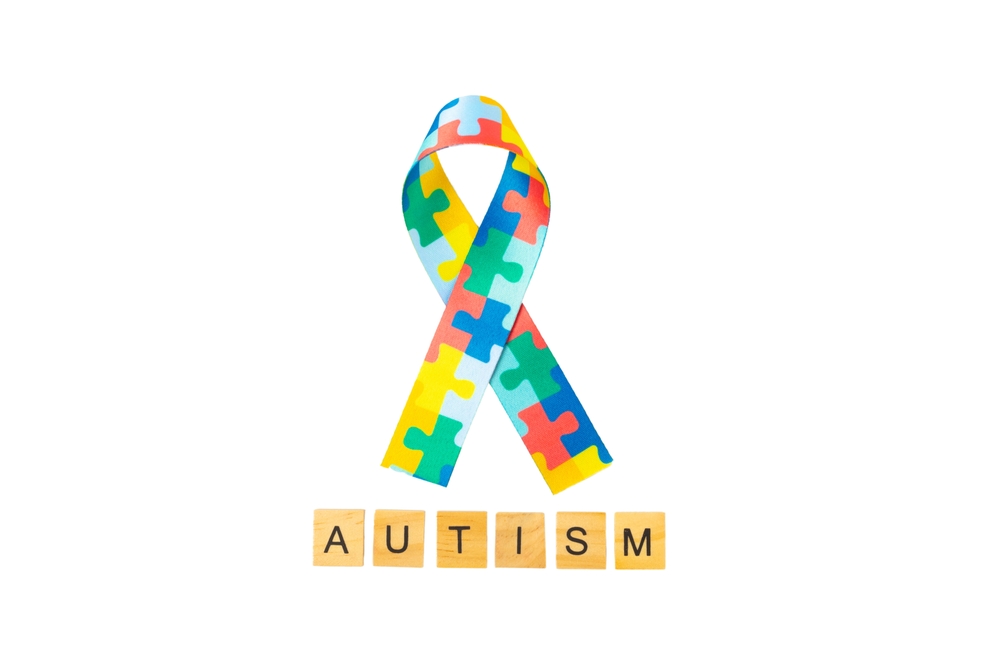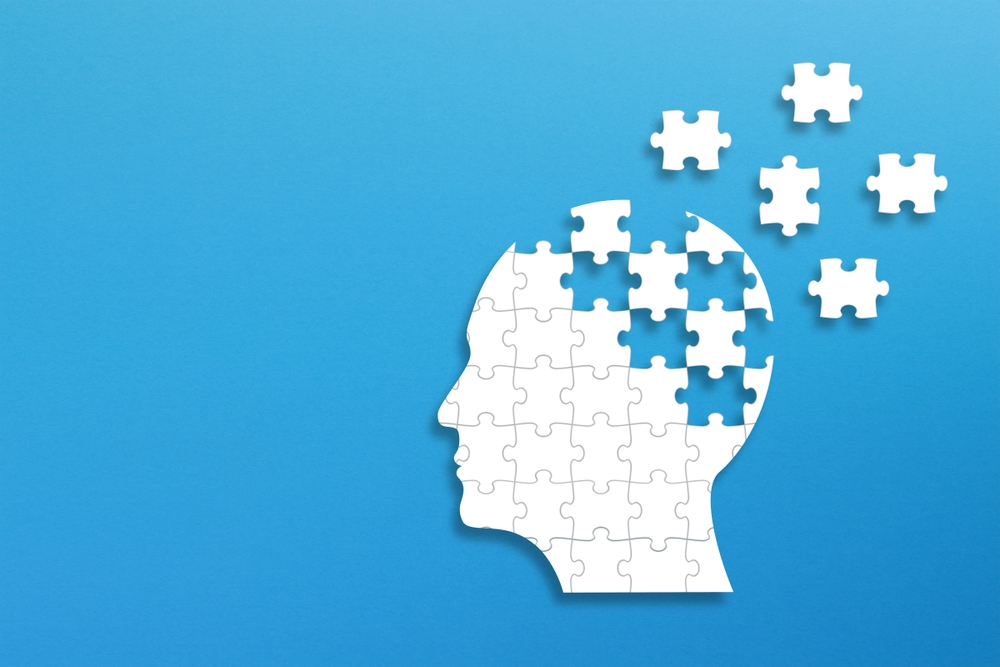Last Updated:
May 27th, 2025
Autism and Addiction | Symptoms and Support Options
What is the autism spectrum?
You’ve probably heard the phrase ‘on the autism spectrum’ from being used in conversations, on TV and in articles about neurodiversity. But despite how commonly it’s mentioned, many people still aren’t entirely sure what the autism spectrum means.
In simple terms, the autism spectrum describes a range of neurodevelopmental differences. Autism affects how people perceive and interact with the world around them, influencing communication, social interaction and behaviours.
Autism is referred to as a spectrum because it looks different for everyone. Some individuals may have subtle traits and live independently, while others need substantial daily support.
Here’s a clear breakdown of some common symptoms people experience on the autism spectrum:

| Area | Symptoms can include: |
| Communication | Difficulty understanding tone or sarcasm; repeating phrases; preference for clear, direct speech |
| Social interaction | Challenges forming friendships; feeling overwhelmed in social settings; difficulty interpreting facial expressions or body language |
| Behaviour and interests | Intense, focused interests; routines and rituals; difficulty adapting to sudden changes |
It’s important to remember that autism can present in countless unique ways. Not every autistic person experiences all these traits and each individual has their own strengths and challenges.
Understanding autism as a broad and diverse spectrum allows us to appreciate and better support the individuality of autistic people.
What are the causes of autism?
The exact cause of autism isn’t yet fully understood. Most researchers agree it’s probably due to a complex mix of genetic and environmental influences rather than any single factor. There’s strong evidence that genetics play a significant role, as autism often appears to run in families. Specific genes linked to brain development have been identified, but there’s no single “autism gene”; instead, many genes likely interact.
Environmental factors also matter, though their exact impact is less clear. Researchers have considered things like infections during pregnancy, prenatal exposure to certain medications or even the age of parents at conception. However, none of these factors alone have been proven to cause autism directly.
Importantly, outdated theories blaming parenting style, diet or vaccines have been thoroughly debunked. Autism arises through a complex interaction of genetics and environmental influences, a combination researchers continue to explore to gain deeper insight.
Is there a link between autism and addiction?
The link between autism and addiction almost feels as though it’s never conclusive, while some would state that some traits of autism, in theory, would amplify the chance of addictions, others disagree. Below, we explain further what is meant by this:
Autism and substance use disorder
For a long time, autism and substance addiction were considered separate issues, partly because earlier research indicated that autistic individuals were less likely to develop problems with substances. But recent studies have revealed that the reality is more complicated.
A large study involving over 26,000 autistic participants found unexpectedly high levels of substance use issues. By looking at a range of factors beyond just addiction (such as substance-related criminal offences) the research revealed that autistic individuals might actually be at greater risk of developing substance addictions than previously believed.
This could be because people with autism often experience high levels of anxiety, sensory sensitivities or social isolation and substances might sometimes be used as a coping mechanism. Understanding this link is crucial, as it enables professionals to design targeted treatments that are better suited to the specific experiences and challenges faced by autistic individuals dealing with addiction.
Autism and behavioural addictions
When it comes to autism and behavioural addictions, there’s currently a notable lack of clear, consistent research. Studies exploring areas such as gambling, gaming or compulsive internet use among autistic individuals have produced potentially important findings that suggest there are links but many of them reach the same conclusion; more evidence is needed to make definitive statements.
This gap in understanding can lead to more significant problems. Autistic individuals experiencing behavioural addictions may struggle without proper recognition, potentially facing misdiagnosis or even receiving inappropriate treatments. Without thorough research into how autism specifically affects susceptibility to behavioural addictions, it’s difficult for professionals to provide tailored support.
Closing this research gap is essential. By gaining a better understanding, healthcare providers can offer more targeted help, reducing the risk of misdiagnosis and ensuring autistic individuals receive the most effective treatment for their unique challenges.
How can someone with autism and addiction be treated?
When someone has autism alongside an addiction, it’s essential they receive what’s known as a dual diagnosis. This means recognising and addressing both conditions at the same time, rather than treating them separately.
This approach is crucial because addiction treatment often needs adapting to accommodate the unique experiences of autistic individuals. People with autism might find certain therapeutic settings overwhelming or struggle with approaches designed for neurotypical clients. They may also have different motivations behind their substance or behavioural addiction, such as coping with sensory overload, anxiety or social isolation.
By clearly identifying autism alongside the addiction, specialists can modify their support to better fit individual needs.

How is autism and addiction treated in rehab?
When someone with autism also struggles with addiction, treatment programmes typically prioritise addressing the addiction itself. However, effective rehab centres understand the importance of making accommodations that specifically address autism-related challenges. These adjustments help autistic individuals feel supported throughout their recovery journey.
Rehab centres that understand autism offer structured environments with predictable routines. Staff members communicate clearly about each stage to help individuals feel secure and prepared. This tailored approach makes detox gentler and helps ease anxieties associated with change, ultimately making the withdrawal phase smoother.
Approaches like Cognitive Behavioural Therapy (CBT) can help manage obsessive thought patterns that autistic people might experience. Dialectical Behaviour Therapy (DBT) is effective for teaching emotional regulation and coping strategies tailored to individual needs.
Many rehab centres also incorporate holistic therapies such as art or yoga, which are particularly helpful for managing stress related to sensory overload.
By combining these methods thoughtfully, rehab ensures autistic individuals receive personalised support that improves their prospects for lasting recovery.
Where can I find help for addiction recovery if I have autism?
If you’re autistic and struggling with addiction, finding tailored support can make a huge difference. At Addiction Helper, we understand autism and addiction. Contact us today for compassionate, personalised advice and guidance on rehab programmes suited to your unique needs, ensuring the best possible path towards lasting recovery.
Our compassionate team are ready and available to take your call, and guide you towards lasting the lasting addiction recovery you deserve.
Frequently Asked Questions
(Click here to see works cited)
- Ramaswami G, Geschwind DH. Genetics of autism spectrum disorder. Handb Clin Neurol. 2018;147:321-329. doi: 10.1016/B978-0-444-63233-3.00021-X. PMID: 29325621.
- Butwicka A, Långström N, Larsson H, Lundström S, Serlachius E, Almqvist C, Frisén L, Lichtenstein P. Increased Risk for Substance Use-Related Problems in Autism Spectrum Disorders: A Population-Based Cohort Study. J Autism Dev Disord. 2017 Jan;47(1):80-89. doi: 10.1007/s10803-016-2914-2. PMID: 27734228; PMCID: PMC5222913.
- Samuel R. Chamberlain a b, et al. “Autism and Gambling: A Systematic Review, Focusing on Neurocognition.” Neuroscience & Biobehavioral Reviews, Pergamon, 3 Feb. 2023, www.sciencedirect.com/science/article/pii/S0149763423000404.
- Ecaterina Eltahir a, et al. “Autism in Relation to Gaming Disorder and Internet Addiction: A Systematic Review.” Computers in Human Behavior, Pergamon, 11 Sept. 2024, www.sciencedirect.com/science/article/pii/S074756322400311X.
- Murray, Alayna, et al. “Autism, Problematic Internet Use and Gaming Disorder: A Systematic Review – Review Journal of Autism and Developmental Disorders.” SpringerLink, Springer US, 26 Apr. 2021, link.springer.com/article/10.1007/s40489-021-00243-0.

